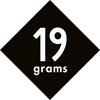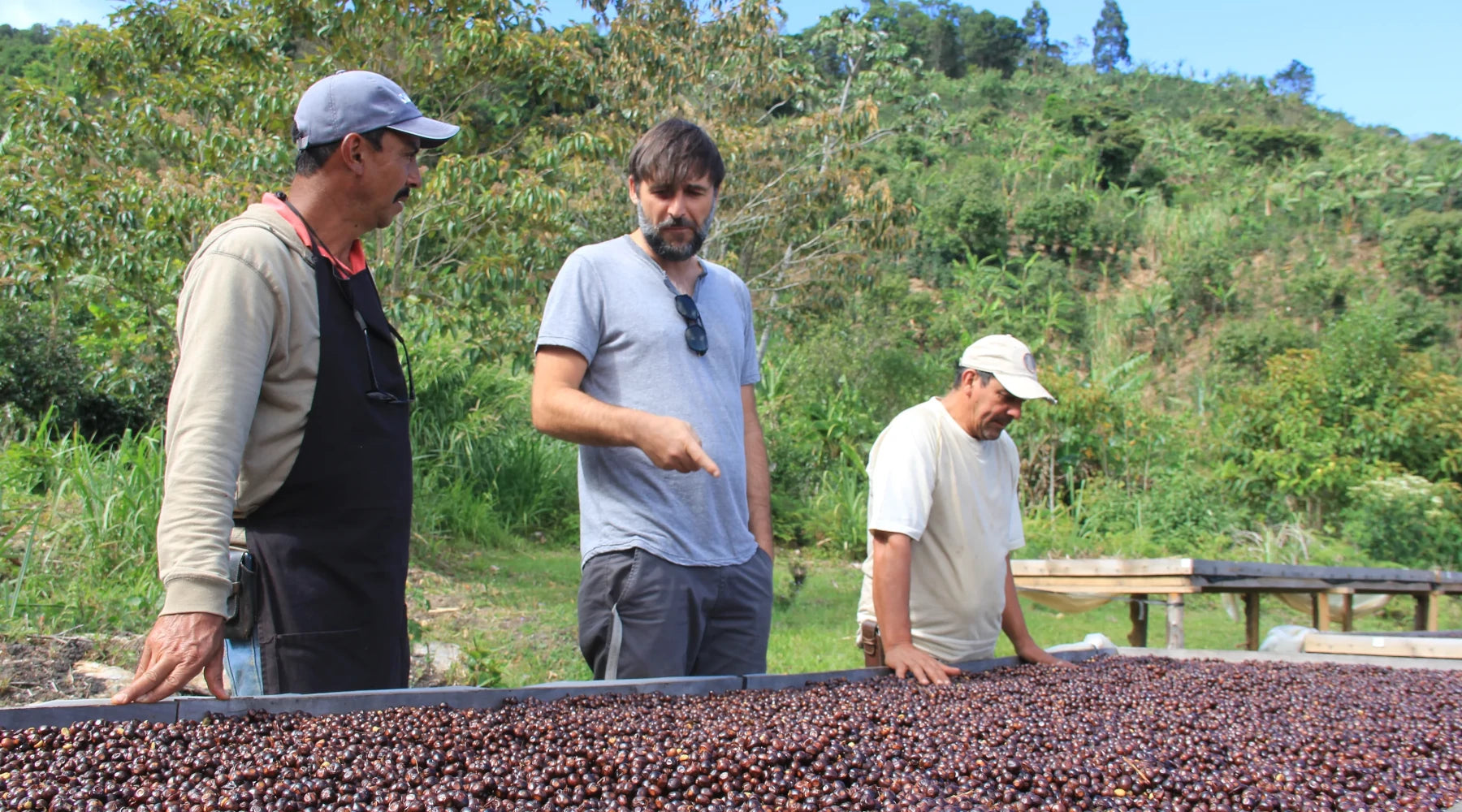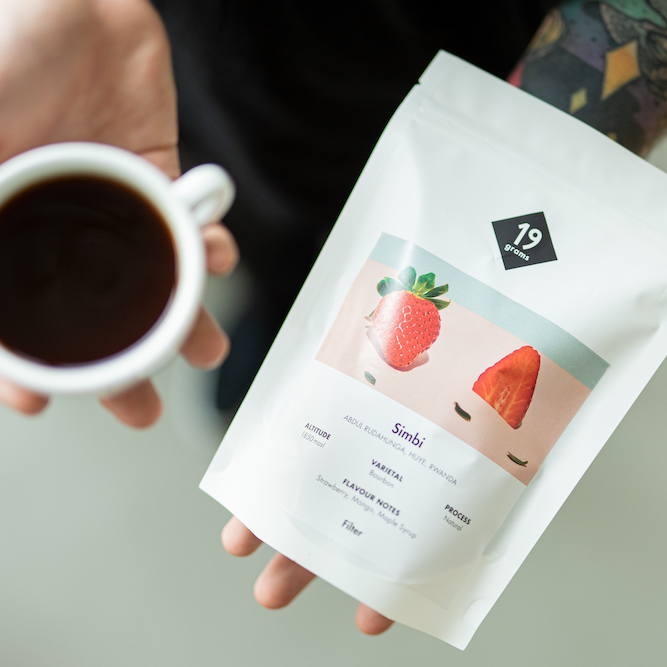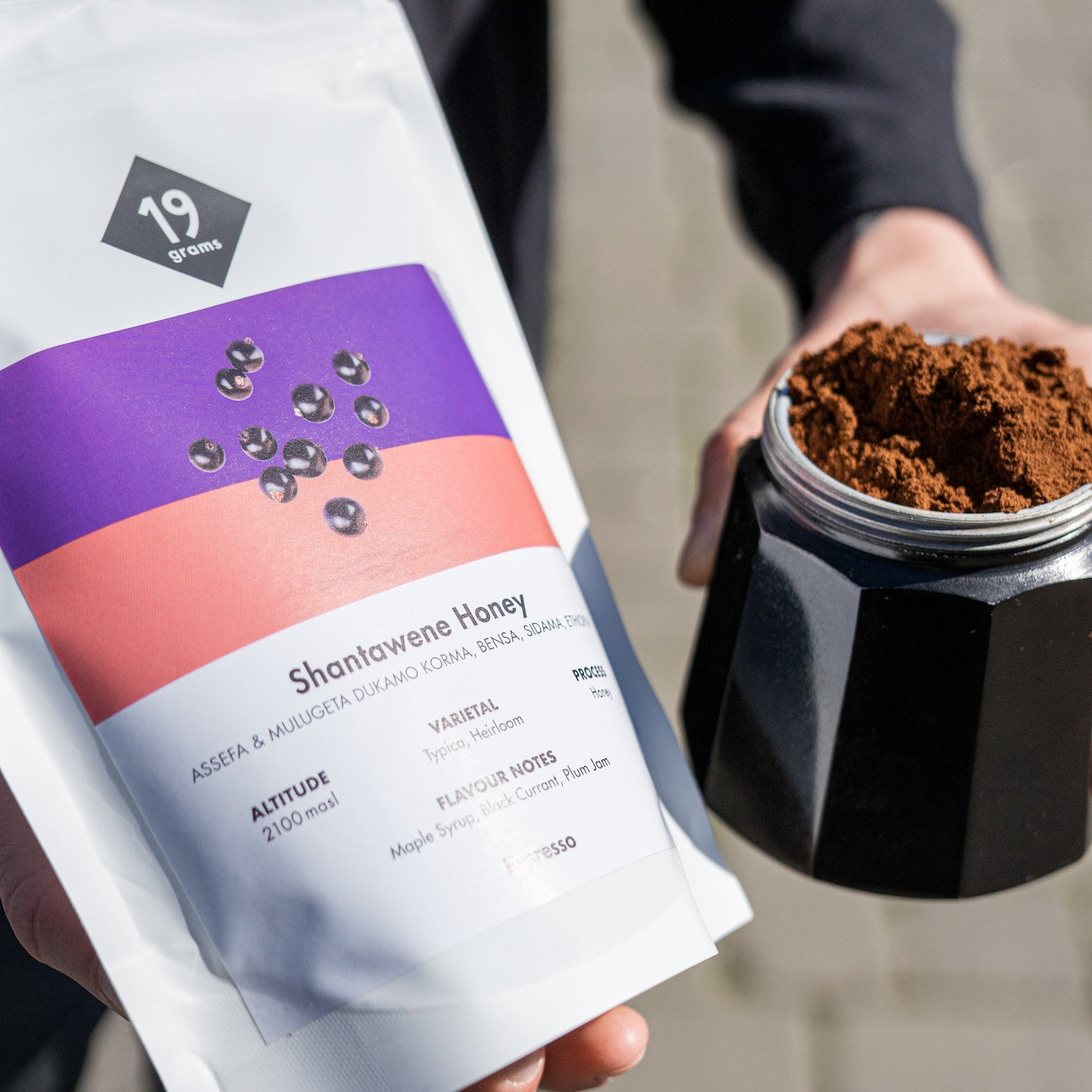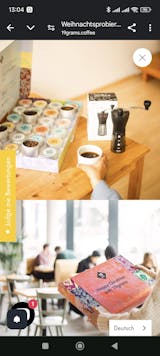La Chumeca is the name of our micro-benefit. There are three micro-benefits that the Ureña Quirós have here in León Cortes. We produce top quality coffee for export, and when it is consumed within the country, the excellent quality is also maintained.
La Chumeca is a name we love. We were told that the word comes from the Caribbean. One day I went for a walk where the doctor asked me: Do you benefit from coffee? Yes, I answered him. What is the name of the company that works for you? La Chumeca, I replied. Oh, you have no idea! Why did we call my mother that?
When we think of the name of our bus, we think of La Chumeca because of my aunt América, whose husband calls her Chumeca. It's all because of our mother's dark skin colour. The Chumecos and Chumecas, the sunniest. The darkest skin colour.
La Chumeca was created for the 2014-2015 harvest. About three years ago. Before this project, we harvested the coffee. We gave it in favour of some transnational organisations. We think it was more boring and less productive then than now. It was a different dynamic. Today we are more motivated because we know that there is a dream being lived here, from harvest to export, which we do ourselves, away from transnational middlemen.
Great satisfaction comes when you join a cupping table and there is one of our coffees. When foreigners start tasting, they say: Is this your coffee? It is when we just draw their attention to this cup of coffee and so much that it depends on the taster's face! The gestural expression received. Oh... how well we hit it! You have to live these moments. My goodness, it's a satisfaction! Because it's a whole year's work. These people are known for having amazing tongues, you can't tell them otherwise!
The tasters discover flavours that the uninformed can't explain where they come from. Which peach, pineapple, raspberry, candy cover, sugar cane juice ... others ... And try it out. Who doesn't know the theme of tasting, it tastes like coffee, yummy! But it doesn't hit any of those tastes that prefer quality coffee like the one we produce. The coffees we have on the coffee plantations are Caturra and Catuay, Red Catuay and Yellow Catuay.
We work with a company that takes care of all the trade logistics. Direct trade in coffee is a step that needs to be taken, an issue that we think is quite risky. It has happened with people loading a container, pouring the coffee and then giving the container away for lost. Terrible, terrible!
We work together with Café Imports. Many of the buyers come to the area to visit us and get involved in our project; they identify and enjoy the activity. For example, an Italian who visited us on Good Friday saw the La Chumeca coffee, tried it and on Holy Saturday he called us back and asked for coffee. This is how it works; The promotion is live and pretty much from the farm where the customer can confirm what is being said in terms of good quality and performance.
There is a big blessing. There are many buyers, there are some. We give Café Imports the first option. If they tell us, this coffee did not taste good. The score is now 87 points. This score is the quality value given to the coffee. From 87 points, it can already be called a gourmet coffee. The rating is done by the tasters. It is a table that evaluates and scores aroma, sweetness, acidity, body and other characteristics such as aroma and more. Each of the characteristics has 10 points. The taster has to find each of these. He notes the different fruit flavours or anything else that manifests itself in the taste he discovers and finds to arrive at a final score. This final result will make the coffee worthwhile. Many tasters say that coffee of 80 and below has no note or taste of what a good coffee should be. They don't rate the coffee, they reject it. Some of the rejected coffees are used for national consumption, processed in local roasters, as there have been.
La Chumeca coffee is selected because not the whole farm or not the same batches every year produce good quality. Then the batches that can give a good taste are classified and the rest are delivered. There is an instrument that is used to measure the sugar grade Britt in each batch. This measurement is done before the catching is started. It is not about sampling and he went and fucked, no. In the device, a study of the coffee honey is done and if there is a certain percentage, the collection is given.
Our company La Chumeca is divided into the fulfilment and work of three people. The first person is responsible for all the man fence maintenance, this is done by Martin. When the coffee is harvested, he is the one who gives the conditions of each cut of the coffee plantation. Martín is the one who manages the plot with the best conditions, the one who is best equipped with leaves and other things. Here we all learn from everyone, there is an important exchange of knowledge. This is greener and shows that this reality is going there.
The greatest in this management is Martin, the greatest in experience and age. He will always be the one who leads: I have more confidence in this lot because this lot is more suitable, it is a shrub with more colour and you can see more leaves.
The second person is Jorge Martín (son), a family member also from La Chumeca. He is the one responsible for the collection. The harvest is another very important control point when it comes to the excellence rate, the coffee rate. He teaches his men everything that is understood about the collectors from Panama and Nicaragua who come to collect. The same as loading the cars, filling them with coffee, measuring the cogedores, keeping the accounts of the suitcases to pay at the end of the week.
The third person in the process is Emilio José (son). What it does is receive the coffee and wash it. He gets help from the family group, mainly from Martín, who actively participates in the whole process of the three phases. Martín is the centre where the action of all the stages completely revolves.
After washing, it equals 17 to 22 days to dry in the sun, depending on the weather. The drying process involves moving, selecting and taking notes. As you can see, this is a family business that we are all involved in. Doña Olga and Sofía, the best daughter in the family, are not left out and also take on certain responsibilities.
People talk about their altitude coffee as if this detail were enough to achieve quality. When someone expresses himself in this way, he makes it clear that he does not know in detail what quality issues are all about. We have many that are 2,000 metres above sea level. It is not exactly the height that gives the required cupping. Everything is a complement. If the plantation is supported as required, it will get the quality that is sought in cupping even at 1,000 metres above sea level.
To support a plantation to get quality, soil analysis is first and very important to know what is in the land. Everything adds attention. Sometimes there is an imbalance between the elements and minerals of the soil, where sometimes improvement is needed with a whitewash or the fertilisers applied. Currently in soil treatment we avoid fertiliser formulas with potassium chloride because chlorine harms us. So the small details come in that end up being big.
Outside, we make friends. We have a German friend, his name is Sacha Spitel. It has arrived here and for us this is the company that is close to our hearts. The first export we did with our code was with them the Germans.
This is incredible. This is a world, is a beauty. There's a Taiwanese guy called Vincent who identifies so much with our company that he calls Martin. Call to tell us: Will you sell me coffee this year? Besides Café Imports, they are examples of foreign people or companies that identify with La Chumeca, and we feel that the whole family appreciates and favours us. That's how it is: a treasure for cultivating friendships. It's not that we feel self-sufficient. Well, of course you have to live with others, accept competition.
We have 12 production blocks. In La Chumeca we have about 12 manzanas with production. From these 12 blocks, more or less 150 bushels of coffee benefit. In 2014, there were 82 fanegas. This was the starting year. Since our goal is quality, we hope not to exceed the target of 150 bushels. Our idea is to maintain the Micro concept with the clarity that Micro needs and represents.
It is not the same as offering someone a small lot of five hundredweight. Go to an American and tell him: we have 60 hundredweights of it. This Italian who came to see us was very happy because he was carrying a 69-kilo sack.
To Emilio José, who is studying in Heredia to become a professional mathematics teacher. On one particular occasion, it fell to him to write the civic contract. And he asked us to help him with some ideas, they asked him to be something nice, with news. They wanted me, as a cultural act, to give a lecture on how coffee is processed, up to the rate.
The university professor said to him: go as if you were going to work. The first thing he put on for the presentation was the hat, the little shirt, the trousers and the "donkey" shoes. He arrived at the school where he had to work and the first thing he asked was who had picked up the coffee. The headmistress, who was already a few years old, raised her hand, another teacher, the English teacher and Emilio. Yep, just four in a school of 200 students.
They were asked if they had seen a coffee plant, of course they had! It would be the last straw, because there is coffee in Heredia. After the conversation, he told them that he was a coffee producer with the family. Also that he brought them coffee for those who wanted to bring quality, which came from the Los Santos area, 100% coffee.
With abundant expertise, Emilio assured them, "This coffee can only be found in two places: In Germany, at a German called Sasha's, and at my place just at the exit. Nice this experience, which not only showed qualities as a motivator in a civic act, but also added the commercial of our coffee.
We do not deviate from quality by any amount. We don't want to get out of this concept. The coffees we bring to the market are very select coffees. We focus on quality and not on quantity. To have a clear idea: If we process 150 bushels, it's like I gave 300 bushels to a charity. Doing real numbers, who knows if we would be there if we had continued to give the coffee to the transnationals.
There are companies we have to thank. One company that helped us so that we could take the first steps is Fundecooperacion. You just can't do it alone. It is a foundation from Costa Rica that gave us recognition. Later, the National Bank helped us with development banking.
This coffee question is about more than just wanting. You know what to wear. When we apply fungicides against the x plague, we use a magnifying glass in our pocket and before we apply the magnifying glass, we use it. With this we can see the fungi and pests that will attack. We use this example to show the use of a magnifying glass (in this case) to see if such a product works. So in anything to do with coffee. We are not academic, but in experience, information and practice we have knowledge and above all we apply it.
In organising the work of La Chumeca, we have to take into account the entrance of the classes in the National University, where Emilio studies, and in the Technological, where Jorge Martín does it. At the beginning of the classes, the work is not yet finished, we are still at the peak of the harvest. At certain times and depending on the workload in their studies, they have to take a break from work with coffee. Here we do the same without doing what needs to be done. They trust our decisions and work in the studio. Sometimes college is hard and difficult for them.
What they have is quite related to our coffee activity. We trust them. Jorge Martín is studying materials engineering with a focus on plastics and metals. And as I said, Emilio is studying to teach secondary mathematics. What he likes most about them is that they identify very much with the studio and at the same time with the work at La Chumeca.
At the beginning of the year, there is an advantage. In the most urgent tasks, they are. The start is the most difficult, touches the summers. Have everything ready in the coffee plantation. It is difficult to fuck the aboriginal as we ask. The indigenous people are excellent, so are the Nicaraguans. If it weren't for this workforce, who knows what we would do. We prefer to work with indigenous peoples. They live here at harvest time.
I remember the first years when the indigenous people arrived here, maybe 25 years ago. Their house was prepared with sanitary facilities and everything that was appropriate in the house. The next day, physical needs were taken care of outside, the toilet was not used. Outside they used some tinamast stones for cooking. Over time, they have greatly improved their personal hygiene habits and the houses we prepare for them. Well, thank God, they are very different. Pity. They pick up tricks from the non-indigenous people. They say they are Latinos. And that's how we live in Latin America. These indigenous people are quite conservative in their customs and indigenous culture.
As I said, the most difficult thing is the beginning. When they go to university, things are on track. Emilio leaves and we have one person who continues to take care of the tasks. Coffee is not that it lasts 17 to 20 days and is stored, no. It's giving you a tracking of the humidity and the other processes. The boy who replaces Emilio is trained, and contact with the boys is not lost, even if they study there. The boy who takes over Jorge's responsibilities stays on the coffee plantation.
Here, the work begins at dawn. There is no main person in charge here. Papa Martin gets up at 4:30 in the morning every day and it is very difficult for him to arrive before seven at night. Also that we have a garden upstairs. Sometimes he stays in the summer watering and taking care of the plants. The love for the work makes us wish that it is dawn to take up the coffee plantation again.
For us, the greatest benefit , more beautiful and satisfying is the family association. In La Chumeca there is no one who plays the leading role, we are all together. Here the company is familiar. Decisions are made, consulted and discussed together. Then the decisions come.
In terms of profitability, we often do settlements. We need to know what we are gaining, and if there are losses, what is at stake. If we are negative, we need to assess the reasons and point out how to address the contingencies and weaknesses we had. No business can be successful if it does not know its accounts.
Working with coffee enables innovation. This year I have a coffee where I did a trial with a goal. We send this coffee to be tasted. Then the taster called us and said, "This is a real blast." People opened the bag and a delicious smell came out, some said it was plums, others peaches, lots of smells. And added: Strangely, the coffee did not taste like the corresponding smell. We told him: Well, we achieved what we wanted. If you smell something good, it tastes good.
This year some Brazilians came and taught us how to make coffee, which they call fermented or anaerobic. The Brazilians - back in Brazil - are doing a degree in fermentation. These Brazilians gave us guidelines for a process that has to do with fermentation. The Brazilian has a micro benefit where he processes what he collects from 150 hectares of coffee plantations.
La Chumeca works with 25 employees, most of them indigenous. They are paid a little of what we earn. They receive ¢1,500.00 (one thousand five hundred colones per tribe) At the end of the collection they are grateful and come back the following year. It is good to treat people well and reward them with incentives in addition.
Here, each coffee plantation usually has two to three harvests per year. Some go in a single pickup. We have a coffee plantation in San Francisco that is good for two harvests. Sometimes with a huge one because it may get full. You look at the crop and everyone thinks it's going to fall off the plant.
We pick this coffee plantation a month later than usual because it doesn't fall. We have a load of yellow coffee. We let it turn orange. In this lot, two years ago, a boy took 24 just ripe stems in one day. People come here who try hard and do well with the pay.
The day we started harvesting, we brought the workers together to talk about responsibility: We told them that we are a company that employs them as much as we do. They are told: let's try to make this year a nice year with no problems. Let's pay attention to what is ordered, they are paid well. It is a time of recommendations and the way we deal with the coffee plantation. At the end of the harvest, they are thanked and paid the bus to go back to where they came from. When it comes to having responsible workers, you often don't know how many you will start with and who you will end with.
We treat plants as they are: Living beings. When we have picked the coffee, we thank them. It is not that we speak to them with words. They are thanked by cleaning them of weeds, pruning bruised branches, they are living beings. When we arrive and see a medium-sized bush left, we ask ourselves: what happened to this one? If it is well cared for and it seems to be restricted in harvesting or drying out, it needs to be investigated why. Some need to be cut with a saw because they are useless.
Nature in all its expressions is a living being made up of other living beings, be they animals or plants, rivers and mountains, seas and lagoons. And so every plant, animal and human being has duties to Mother Nature, which she gives us and sometimes we do not fulfil.
The coffee farmers' union is quite divided, each to his own. We as a family help each other out and go for it, but it costs! There was a micros association here that ended up fizzling out.
There are towns and cantons that think they are unique. There are coffee farmers who think they are insurmountable, they always want to be separate. The truth is that it shows how badly wealth is distributed. Those who have have a lot, and those who have little have their limits.
We use the "blanket" of Café Tarrazú. We believe in the history of this coffee, in its quality, and we have not thought and we believe that we will not think that we have to pull the cart to the other side.
The upper part of Tarrazú has coffees that are equal to or better than those of all the other cantons. It is said of Naranjo that they are also good coffees. It is said of other places. We have the privilege of the fame and reality of CAFÉ TARRAZÚ.
STAGES OF THE PRODUCTION PROCESS IN LA CHUMECA
We consider the production process important and present it in its stages. This will make the reader more familiar with our work in the micro-processing of La Chumeca in the activities of the annual cycle.
before review In order to go through each phase, we need to know the annual process, or the almost permanent daily tasks such as the general cleaning of the coffee plantations, diagnosis and preparation for harvest, fertilisation, pruning, weeding and special cleaning of the coffee plantations each plant. Also very important is the promotion and sale of the product. Marketing must be constant, let's call it aggressive in the good sense of the word. We have to resort to different means to reach the customer. We ensure effective marketing and thus the highest cupping quality.

